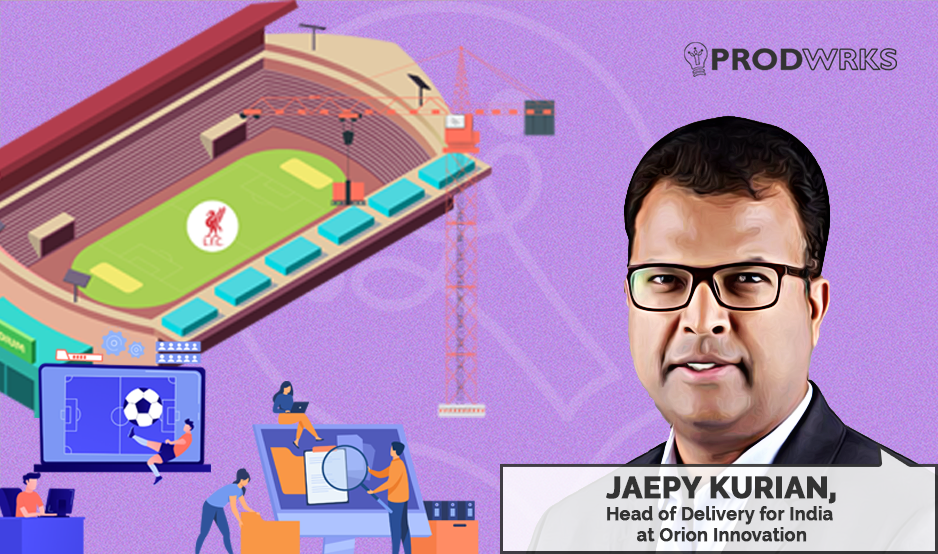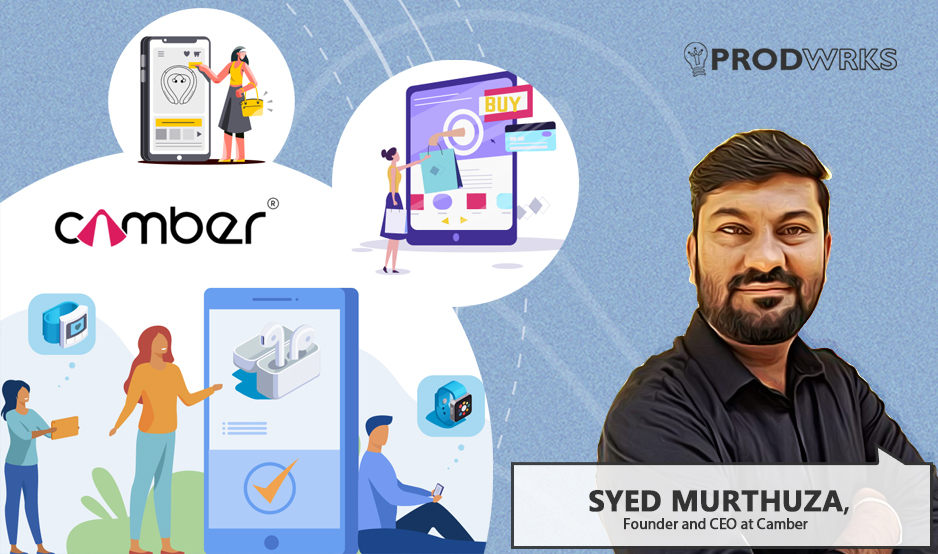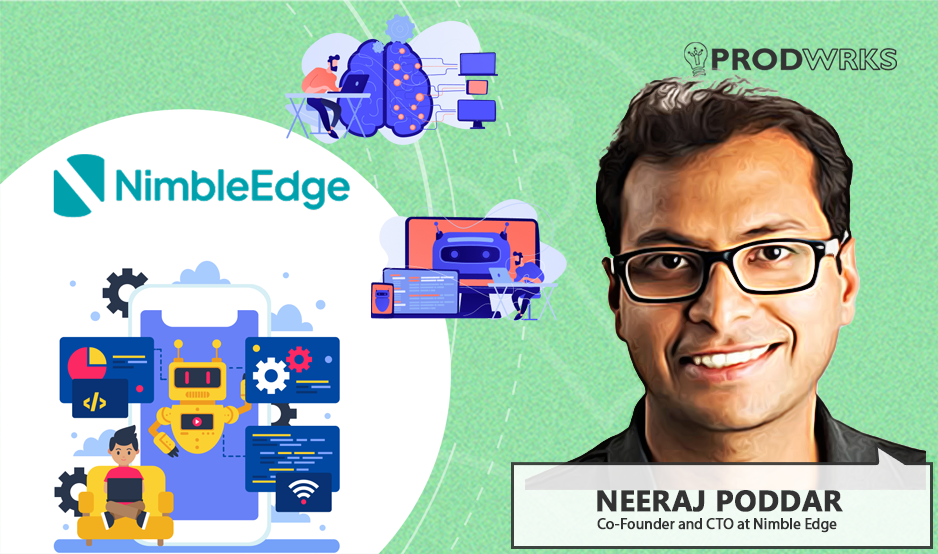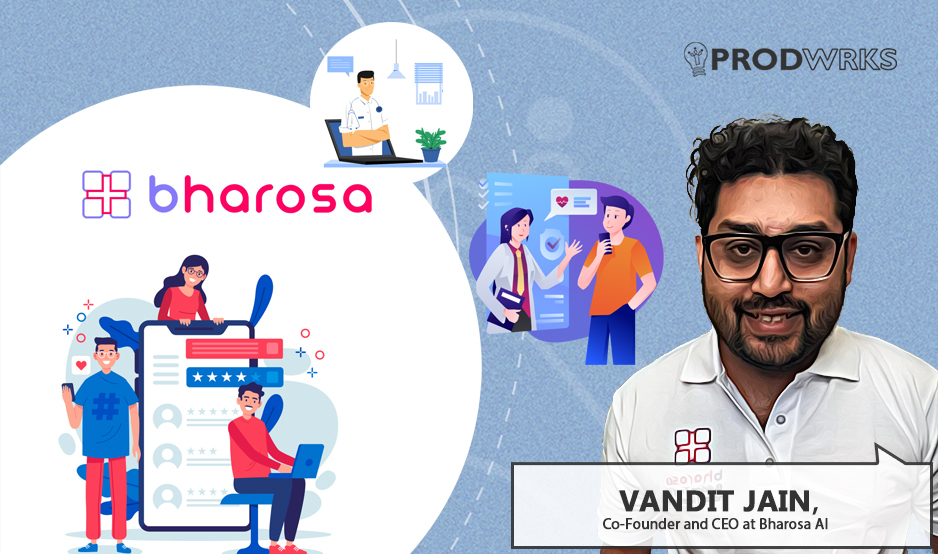
One of the world’s most iconic football clubs, Liverpool FC recently announced Orion Innovation as their official digital transformation partner. With this significant milestone, Orion, a global leader in digital innovation, is quickly establishing itself as a powerhouse in the sports-tech landscape.
With its roots in Edison, NJ, and a robust workforce of over 6,200 across 14 delivery centers worldwide—including key hubs in India—Orion is redefining how technology can enhance sports management, operations, and fan experiences. Through solutions like Stadium-as-a-Service, Grassroots Platform, and Integrity-Safeguarding platform, Orion helps some of the biggest sports leagues and teams across the world embrace digital transformation to build better teams, create better experiences for fans, and multiply their revenue.
At the helm of Orion’s India operations is Jaepy Kurian, a seasoned industry leader with over 25 years of expertise in cloud, infrastructure, and application management services. As the Head of Delivery for India, Jaepy’s leadership is pivotal to Orion’s India growth and his insights also shape the company’s ambitious goals in sports technology.
Leveraging his extensive background with industry giants like Tech Mahindra and Infosys, Jaepy is guiding Orion’s strategy to solve critical issues in sports like data fragmentation, security and compliance management, and broken fan experiences.
In an exclusive interview with ProdWrks, Jaepy dives deep into Orion’s role in the sports-tech ecosystem, discussing how data analytics, AI, and modernized digital solutions are enhancing operations for top teams and leagues worldwide.
His perspectives provide a unique look at the digital future of sports management and the technology transforming how we experience sports—whether on the field, in the stands, or from home.
*This interview has been edited for clarity and length.
Q. What are the products and solutions that Orion offers in the sports-tech space? Who are your major clients?
Jaepy Kurian: Orion has developed several key platforms and products to help the world’s sports organizations embrace digital innovation. Our core offerings include Stadium-as-a-Service, Grassroots platform, and an Integrity–Safeguarding platform.
Stadium-as-a-Service enhances fan experience and integrates enabling technologies to transform in-stadium operations. The Grassroots platform enables direct engagement among participants, leagues, clubs, and administrators across all sports. The Integrity–Safeguarding platform is a user-friendly incident and case management system that can handle critical and sensitive issues in sports, such as misconduct, abuse, and breaches of conduct.
We have collaborated with some of the biggest sports leagues and teams across the UK, Europe, the US, and Asia Pacific, helping them leverage a complete sports ecosystem, power revenue with technology, and build better teams with better data. We’re also proud to partner with Liverpool Football Club as their official digital transformation partner, supporting them as they continue to innovate digitally.
Q. Based on your research, what are the problems you’ve identified in traditional sports operations and management that are solvable by modern technology?
Jaepy Kurian: Traditional sports operations face several pain points that are addressed by modern technology solutions, including:
- Data Fragmentation: Sports organizations often struggle with siloed, inconsistent data, making it hard to manage personnel, logistics, and operations.
- Manual Processes: Many clubs and federations rely on manual or semi-manual processes for ticketing, event management, player registration, and operations, leading to inefficiencies and errors.
- Complex Stakeholder Management: Coordinating with multiple stakeholders—players, coaches, fans, officials—using outdated systems is challenging and prone to errors.
- Security and Compliance: Ensuring compliance with anti-doping, legal, and ethical standards manually is both resource-intensive and error-prone.
- Revenue Leakage: Without modern data analytics or revenue-generation models (example: video streaming, fan engagement), sports organizations struggle to maximize potential revenue streams.
Q. Can you share examples of key insights from your research that translated into a key feature or functionality?
Jaepy Kurian: Orion approaches product discovery and strategy by identifying gaps in the sports and entertainment industry, particularly in using technologies like NFTs for fan engagement. Through user and market research, we found an opportunity to create unique fan experiences.
One key insight led to the development of a special NFT series for Bobby Bonilla Day, which included a “1 of 1” NFT of the famous sports contract. We built a purchase platform that allowed fans to buy NFTs using credit cards, removing the need for a crypto wallet. This made it easier for fans to access the product.
This auction of the “1 of 1” NFT made one of the highest sales in sports NFTs. This project shows how insights and innovation can create impactful product features that resonate with fans.
Q. How does Orion enhance sports operations and management? Can you share use cases for your technology and key outcomes for your clients?
Jaepy Kurian: Orion’s sports management solutions significantly enhance operations for clients by modernizing outdated systems and streamlining processes. For example, we worked with a major European sports association that faced challenges with a legacy platform consisting of 14 modules across 18 countries. This outdated system resulted in high maintenance costs, scalability issues, and operational inefficiencies.
By implementing a microservice-based application, we modernized their digital systems, improving scalability and flexibility. The new cloud-based applications not only reduced operational costs but also provided a dependable platform for managing critical functions, such as player discipline. This transformation enabled the association to enhance productivity, streamline processes, and ensure efficient communication among league officials, teams, and players—all while maintaining a low-cost structure for ongoing improvements and feature updates.
Q. How does Orion support sports people? Are there any products or tools that help athletes track and improve their performance and development?
Jaepy Kurian: Orion enhances player performance and development through innovative tools designed for effective training, tracking, and analysis. Our Sports Operations platform is central to this, enabling organizations to manage extensive player data efficiently.
Key features include advanced data analytics that allow teams to monitor performance metrics and track progress over time. Coaches and trainers can identify strengths and weaknesses, tailoring training programs to each athlete’s needs. By analyzing game footage, teams gain insights into player techniques and decision-making, leading to targeted improvements.
We also offer wearable technologies that collect real-time performance data during training and games. This data helps optimize training loads and reduce injury risks by adjusting programs based on each athlete’s physiological responses. Additionally, our Player Management module centralizes player information, including training history, health metrics, and performance stats.
This comprehensive approach allows teams to make informed decisions about player development and strategy.
Q. Can you share more insights on how Orion leverages data analytics and AI to enhance its sports tech solutions with specific examples?
Jaepy Kurian: Orion helps sports organizations use data to drive growth, improve player performance, and streamline operations. A notable example is our work with a Fortune 100 Sports and Fitness brand to transform their retail operations. The client wanted to enhance the shopping experience by implementing mobile points of sale (POS) that allowed sales associates to complete transactions throughout the store.
Orion’s solution included a small POS terminal paired with an iOS device (iPhone, iPod Touch, or iPad), giving associates access to real-time data on product availability and inventory levels. This data access enabled associates to answer customer inquiries quickly and provide personalized recommendations based on in-store and nearby inventory.
The platform integrated with loyalty programs and promotions, offering insights into customer preferences, which allowed the client to tailor their marketing efforts. Additionally, the system updated inventory in real time, ensuring accuracy and improving stock management.
As a result, the solution improved the customer experience by eliminating wait times and enabling associates to drive sales through informed interactions.
Q. What do you envision as the next phase of evolution for sports management? How will teams of the future use technology to manage operations.
Jaepy Kurian: The next phase of sports management will focus on integrating advanced technologies to improve operational efficiency, player performance, and fan engagement. Orion’s Sports Operations platform will streamline essential functions with modules for integrity and case management, ensuring compliance and effective reporting of misconduct.
Teams will benefit from digitized ticketing and credentialing systems that simplify event access and manage attendee details. Inventory management, rights and royalties’ management, and financial budgeting tools will optimize resources and enhance financial planning, while digitized contract management will facilitate easier tracking of contracts throughout their lifecycle.
Technology will also support comprehensive player management, allowing organizations to monitor performance and well-being while ensuring anti-doping compliance. Event coordination, including Match Day logistics, will improve with real-time data and scheduling tools for officials and tribunals.
By embracing these technologies, teams will create a more connected and responsive environment, focusing on sustainability and community engagement, ultimately transforming sports management into a smarter, data-driven field.
Q. Orion is also deeply involved in developing solutions to enhance stadium and fan experiences. How is technology redefining experiences of watching a live event?
Jaepy Kurian: Technology is transforming live event experiences by enhancing engagement and convenience for fans. While nothing compares to the excitement of being at an event, stadiums can capitalize on this by improving attendance and overall experience.
Orion’s Stadium as a Service offering focuses on the entire user journey—before, during, and after the event. Our centralized platform enables stadium operators to manage facilities efficiently with key modules, including ticketing, event management, marketing, maintenance, reporting, integration, mobile access, and analytics.
For instance, the online ticketing system simplifies ticket purchases while helping managers optimize seating and access control. The event management module streamlines logistics like staffing and crowd control. Targeted marketing campaigns can boost attendance, and real-time analytics provide insights into ticket sales and revenue for informed decision-making.
Q. What are some of the modern day challenges of teams, stadium operators, and other stakeholders conducting a live event?
Jaepy Kurian: I believe there are five key challenges faced by teams, stadium operators, and stakeholders conducting live events:
- Fan Engagement and Experience: Meeting evolving fan expectations is crucial. Teams must find innovative ways to engage attendees through immersive experiences, social media, and personalized content.
- Technology Integration: While technology enhances the fan experience, integrating various systems (ticketing, crowd management, and event operations) can be challenging. Ensuring reliable connectivity for services like Wi-Fi and streaming is essential.
- Environmental Sustainability: Increasing pressure to adopt sustainable practices requires teams and stadiums to focus on reducing waste, managing energy consumption, and providing eco-friendly transportation options for fans.
- Security Concerns: With rising threats of violence and terrorism, event security is a top priority. Robust screening processes and crowd management strategies are necessary, adding to operational complexity and costs.
- Health and Safety Protocols: Ensuring the safety of attendees, players, and staff is critical, especially in light of recent health crises. This includes implementing health screenings and sanitation practices, which can complicate logistics.
Q. Can you explain how Orion creates engaging fan/stadium experiences with a case study?
Jaepy Kurian: Orion has developed an offering that takes a dual approach weighted more towards the platform approach where user journeys are designed within a platform: Stadium as a Service. While most solutions are thinking of experience within the stadium, we have expanded our approach to cover pre-event, during the event, and post event opportunities.
Before the event we aim to build anticipation by providing relevant information about the game such as what color jerseys the teams will be wearing, whether or not there is a theme night, and promoting other community interactions. Then, during the event we can offer a greater experience regardless of where fans are seated.
Our platform can help enhance security, provide parking assistance, allow fans to order concessions, near live feeds that can provide real-time information and promotions, crowd control, personalization, and other fan interactions. Organizations can even choose to gamify the viewer experience with a “game within a game” system, where like-minded fans can compete through the platform.
After the game, our system can help with facilities control like waste management, provide security feedback, promote upcoming events and merchandise, facilitate community discussions, and integrate with social media.
Q. Are there any specific features or initiatives aimed at fostering deeper connections between fans and their favorite stars or teams?
Jaepy Kurian: Key initiatives that can deepen these connections include:
- Personalized Experiences: Clubs leverage data and AI to tailor content and offers to individual fan preferences, enhancing satisfaction and loyalty through exclusive videos and merchandise.
- Loyalty and Gamification: Engaging loyalty platforms reward fans for participation, turning casual followers into dedicated supporters. Features like points, badges, and leaderboards encourage interaction and build community.
- Direct Communication Channels: Clubs use SMS, WhatsApp, and chatbots to keep fans informed with real-time updates and interactive opportunities, such as submitting score predictions during matches.
- Cross-Platform Integration: By integrating ticketing, merchandise, and engagement platforms, clubs provide fans with a seamless experience, making interactions more convenient and informative.
- Immersive Digital Experiences: Technologies like VR and AR offer fans unique ways to engage, allowing them to participate in virtual events and watch games in digital environments, regardless of their physical location.
Q. What emerging technologies do you see having a significant impact on the sports industry and stadium experiences in the coming years? How is Orion positioning itself to capitalize on these trends?
Jaepy Kurian: The next few years will see a deeper reliance on real-time data analytics, AI, and machine learning to drive smarter decision-making. Imagine a world where future teams use these technologies to analyze live data streaming in from players, stadiums, and fans, making split-second, data-backed decisions on everything from player fitness to match strategies. This real-time intelligence will give teams a competitive edge and transform the way they operate on and off the field.
But the transformation doesn’t stop there. AI will play a pivotal role in delivering hyper-personalized fan experiences. By analyzing fan behavior and preferences, sports organizations can offer customized content, tailored promotions, and immersive AR/VR experiences that engage supporters in entirely new ways—whether they’re at the stadium or watching from home. This personalized approach will build stronger connections between fans and their favorite teams, enhancing loyalty like never before.
Meanwhile, sports management systems will continue to break down traditional silos, becoming more interconnected and collaborative. Teams, sponsors, broadcasters, and fans will work within a unified ecosystem, making operations smoother and more efficient. Here, blockchain could step in, providing transparency in critical areas like contracts, merchandise, and ticketing, ensuring trust and accountability throughout the sports business landscape.
Looking ahead, stadiums themselves will evolve into “smart hubs,” leveraging IoT and AI to optimize everything from crowd management to security and personalized services. These tech-powered venues will not only enhance the fan experience but also redefine what it means to attend a live event, seamlessly blending physical and digital interactions into a richer, more engaging experience for everyone involved.
Orion’s two decades of global experience and deep expertise in sports and entertainment uniquely position us to lead the next wave of digital transformation in the industry. Our transformative work with clients enables us to continue innovating in the areas of data analytics, blockchain, AI-powered platforms, and whatever cutting-edge technologies the future holds.



